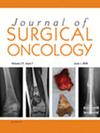Adjuvant Radiotherapy in Incidental Positive Nodal Disease in Rectal Cancer—A Systemic Review
Abstract
Background
The optimal adjuvant treatment strategy for incidentally detected node-positive rectal cancer following curative surgery remains uncertain. While preoperative chemoradiotherapy (CRT) is the standard for locally advanced rectal cancer, the role of adjuvant radiotherapy (RT) in early stage node-positive disease (stage IIIA) remains debated. This systematic review evaluates survival outcomes associated with different adjuvant modalities and identifies key prognostic factors influencing disease progression.
Methods
A systematic search of PubMed, EMBASE, MEDLINE and the Cochrane Library was conducted up to August 2024, following PRISMA guidelines. Retrospective studies assessing oncological outcomes in patients with incidental nodal disease rectal cancer who underwent curative surgery without prior neoadjuvant therapy were included. Risk of bias was assessed using the Newcastle-Ottawa Scale. Due to heterogeneity of studies, a meta-analysis was not performed. This review is registered with PROSPERO (CRD42024596805). No funding was received.
Results
Nine studies comprising 5989 patients were analysed. Adjuvant therapy was associated with improved outcomes compared to observation alone. Overall survival (OS) ranged from 61.3% to 92% for adjuvant chemotherapy (CT), 63% to 93% for CRT, and 42% to 82.1% for no adjuvant therapy. Disease-free survival (DFS) ranged from 43% to 90%. Local recurrence (LR) was lowest with CRT (2%–9.1%), while metastatic disease (MD) ranged from 20% to 50%. Poorer outcomes were linked to pN2 disease, positive margins, perineural invasion, high lymph node ratio and low tumour location.
Conclusion
Adjuvant CT improves survival in incidental node-positive rectal cancer; RT may benefit high-risk subgroups. Further prospective studies are warranted.



 求助内容:
求助内容: 应助结果提醒方式:
应助结果提醒方式:


